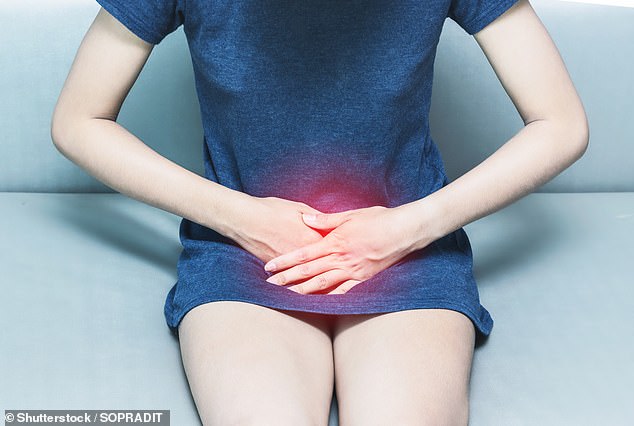A pill that “sterilizes” urine could prevent recurrent urinary tract infections (UTIs), with a new study showing it works as well as antibiotics.
About 80 percent of women will develop a urinary tract infection at some point.
While acute infections can clear up on their own or with antibiotics within days, one in four women experience repeat infections up to three times a year or more.
These patients may receive a low-dose antibiotic for six months to a year to prevent recurrence of the infection. Urinary tract infections are usually caused by bacteria such as E. coli that travel through the digestive system and into the urinary tract.
Women are particularly susceptible to them because their urethra - the tube that carries urine from the bladder out of the body - is shorter than men's and bacteria can get to the bladder more easily.

About 80 percent of women will develop a urinary tract infection at some point. While acute infections can clear up on their own or with antibiotics within days, one in four women experience repeat infections up to three times a year or more
Here they plant themselves in the wall and multiply. The antiseptic pill called methenamine hippurate kills bacteria in urine. The drug is broken down by the body into formaldehyde, a natural disinfectant.
This, in turn, “denatures” proteins in the bacteria and breaks down their molecular structure, killing them.
In a new study from Newcastle upon Tyne NHS Hospitals Foundation Trust, 240 women with recurrent urinary tract infections were given either methenamine hippurate or one of three standard antibiotic treatments (nitrofurantoin, trimethoprim or cephalexin) to take daily for a year.
The researchers found that the antiseptic drug was as effective preventatively as a low-dose antibiotic (with similar infection rates, 1.38 per year, compared to 0.89 in the antibiotic group), they reported in the BMJ. This study follows a 2019 review that identified the drug's effectiveness in preventing UTIs in older men and women.
The treatment is already approved by the National Institute for Health and Care Excellence for UTI prevention but is not widely used. The Newcastle researchers hope their findings could lead more doctors to consider the antiseptic as an alternative to antibiotics to prevent recurrent urinary tract infections in women.
However, the medication can cause side effects such as nausea and vomiting. Commenting on the study, Sachin Malde, consultant urological surgeon at London's Guy's and St Thomas's NHS Foundation Trust, said: "One of the big problems with recurrent urinary tract infections is trying to prevent antibiotic resistance."
“Methanamine hippurate has been used for years, but the evidence has not been that strong – this research fills that gap as a robust, well-conducted real-life study.
“The results would hopefully give urologists and general practitioners confidence to prescribe this medication as an alternative to a daily antibiotic to prevent recurrent infections.”
Meanwhile, regular antibiotic use in middle age may have a ripple effect on cognition later in life, suggests a new study in the journal PLOS One. US scientists analyzed data from around 14,000 women in their 50s about their antibiotic use and compared it with the results of memory tests seven years later.
Those who took antibiotics for two months or more over a four-year period performed worse than those who took shorter courses or received no treatment - the drugs' effect on the balance of gut microbes is thought to be responsible.
Dig with a spade – it can help relieve chronic pain. Researchers at Portsmouth University examined data from 5,800 over-50s about how often they exercise and how severe their pain is. High levels of activity – including digging and swimming – at least once a week have been linked to less pain. They suggested that intense exercise leads to weight loss, which reduces pain.
Small capsules that release anti-inflammatory chemicals when implanted into the body could treat certain types of cancer.
The implants - which consist of a plastic shell containing cells that release a protein called IL2 - attack tumors and the inflammation they cause. In animals, this has eliminated ovarian and colon cancer, reports the journal Science Advances.
US researchers at Rice University will begin trials on people with these cancers this year and later hope to use the capsule containing various proteins to treat lung or liver cancer.

 Suche
Suche
 Mein Konto
Mein Konto

